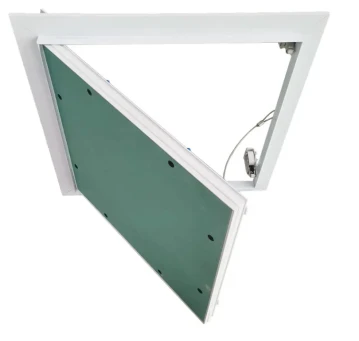- Afrikaans
- Albanian
- Amharic
- Arabic
- Armenian
- Azerbaijani
- Basque
- Belarusian
- Bengali
- Bosnian
- Bulgarian
- Catalan
- Cebuano
- Corsican
- Croatian
- Czech
- Danish
- Dutch
- English
- Esperanto
- Estonian
- French
- German
- Greek
- Hindi
- Indonesian
- irish
- Italian
- Japanese
- Korean
- Lao
- Malay
- Myanmar
- Norwegian
- Norwegian
- Polish
- Portuguese
- Romanian
- Russian
- Serbian
- Spanish
- Swedish
- Thai
- Turkish
- Ukrainian
- Uzbek
- Vietnamese
Th11 . 09, 2024 19:49 Back to list
Exploring the Benefits of Gypsum in PVC Applications for Enhanced Performance
The Role of Gypsum in PVC Production A Comprehensive Overview
Polyvinyl chloride (PVC) is one of the most widely used synthetic plastics in the world. Its versatility makes it a popular choice across various industries, including construction, healthcare, and automotive sectors. One of the critical yet often overlooked components in the production of certain PVC products is gypsum. This article explores the role of gypsum in PVC manufacturing, including its benefits, applications, and environmental impact.
Understanding Gypsum
Gypsum is a naturally occurring mineral composed of calcium sulfate dihydrate (CaSO₄·2H₂O). It is widely known for its use in the production of plaster, wallboard, and cement. However, gypsum also finds applications in the polymer industry, particularly in enhancing the properties of PVC.
Benefits of Gypsum in PVC
1. Improved Mechanical Properties The incorporation of gypsum in PVC formulations can significantly enhance mechanical properties such as tensile strength, impact resistance, and durability. This improvement makes PVC products more robust and suitable for various applications, including construction materials like pipes and fittings.
2. Cost-Effectiveness Gypsum is relatively inexpensive compared to other fillers and additives used in PVC production. This cost-effectiveness allows manufacturers to reduce production costs while maintaining or even improving the quality of the final product.
3. Enhanced Fire Resistance One of the most significant advantages of using gypsum in PVC is its fire-resistant properties. Gypsum is inherently a non-combustible material, which can help in reducing the fire risk associated with PVC products. This is particularly valuable in construction applications where building materials require a certain level of fire safety compliance.
4. Improved Processing Characteristics Gypsum can also aid in the processing of PVC by improving flow characteristics during extrusion or molding operations. This leads to better and more uniform product formation, which is crucial for maintaining quality control in mass production.
5. Sustainability With the growing emphasis on sustainable manufacturing practices, the use of natural materials like gypsum aligns well with eco-friendly initiatives. Gypsum can be a renewable resource, especially when sourced responsibly, contributing to the overall sustainability of PVC production.
gypsum pvc

Applications of Gypsum-Enhanced PVC
Gypsum's role in PVC extends to various applications
- Construction Materials Gypsum-enhanced PVC products are widely used in construction for applications such as pipes, profiles, and wall coverings. Their improved mechanical properties and fire resistance make them ideal for both residential and commercial buildings.
- Automotive Components The automotive industry has begun to utilize gypsum-filled PVC composites for interior applications. These materials provide an optimal balance of weight savings and strength, contributing to more fuel-efficient vehicles.
- Consumer Goods In consumer products, such as storage containers and household items, the addition of gypsum can improve the durability and longevity of the products.
Environmental Considerations
While gypsum offers numerous benefits in PVC production, it is essential to consider the environmental implications. Gypsum mining and processing can have ecological impacts, including habitat disruption and energy consumption. However, the use of recycled gypsum (from demolition waste, for example) can mitigate these concerns, making it a more sustainable option.
Moreover, as industries move towards greener alternatives, the focus on reducing the carbon footprint of PVC manufacturing has intensified. Incorporating sustainable practices and responsibly sourcing materials like gypsum can significantly influence the overall environmental performance of PVC products.
Conclusion
Gypsum plays a pivotal role in the production of PVC, offering a myriad of benefits that enhance the mechanical, fire, and processing properties of this versatile polymer. As industries strive for cost-effective and sustainable solutions, the incorporation of gypsum not only meets these demands but also contributes to the long-term viability of PVC applications. By recognizing and optimizing the use of gypsum in PVC production, manufacturers can ensure that they remain competitive while also embracing sustainable practices that benefit both their operations and the environment.
-
Transform Interiors with PVC Gypsum Ceiling: A Stylish, Durable, and Moisture-Resistant SolutionNewsMay.19,2025
-
The Smart Interior Upgrade: Discover the Durability and Versatility of Gypsum Ceiling Access Panel SolutionsNewsMay.19,2025
-
The Smart Choice for Interior Design: Discover the Value of PVC Gypsum Ceiling SolutionsNewsMay.19,2025
-
Mineral Fiber Ceiling Tiles: The Smart Blend of Performance and AestheticsNewsMay.19,2025
-
Mineral Fiber Ceiling Tiles: The Superior Choice Over Gypsum for Sound and Fire SafetyNewsMay.19,2025
-
Mineral Fiber Ceiling Tiles: Eco-Friendly Strength and Style for Every CeilingNewsMay.19,2025







